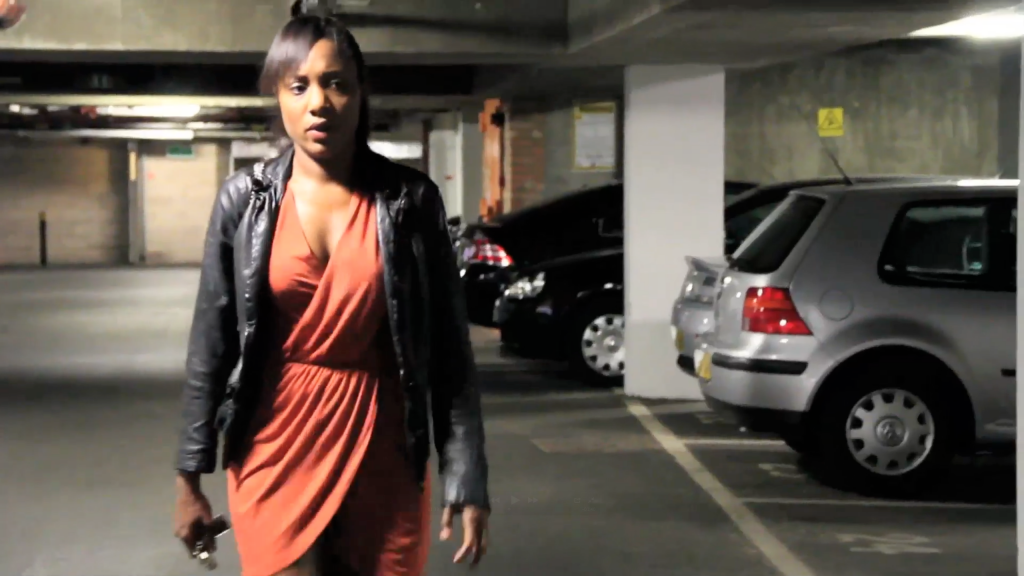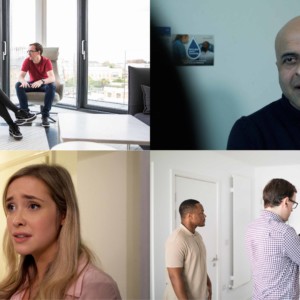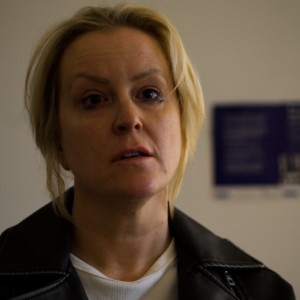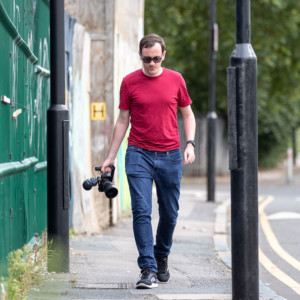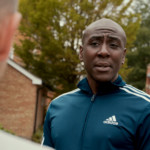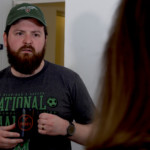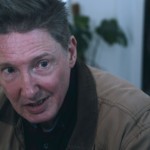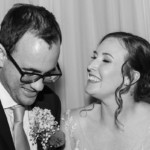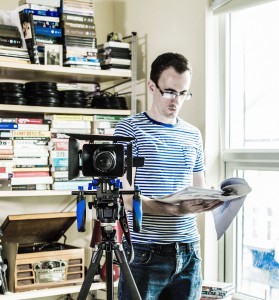 There’s a reason they call it ‘no-budget’, and not ‘no-resources’. You have plenty of resources. You have physical resources but you also have resources within yourself – like your powers of persuasion, or the way you can guilt friends into repaying favours – you’re going to need all these tools are more. Here are some tips.
There’s a reason they call it ‘no-budget’, and not ‘no-resources’. You have plenty of resources. You have physical resources but you also have resources within yourself – like your powers of persuasion, or the way you can guilt friends into repaying favours – you’re going to need all these tools are more. Here are some tips.
1. Shoot a film on your phone.
Your phone is powerful. It’s probably HD and everything. Sure you can make a list of excuses about how it’s not high quality enough or the sound is bad or you’re waiting for a whatsapp from some Tinder date so you don’t want to use it for filming but whatever the reason, STOP MAKING EXCUSES; the camera on your phone is a STORYTELLING MACHINE.
Tip within the tip: Write a film that is MEANT to look like it was filmed on a phone. Here’s some concepts I am coming up with as I write: ‘There world is about to end and a group of friends send video messages to the ones they love‘. ‘A party goes wrong and one witness captures it on camera‘. ‘Two YouTube singers shoot their latest video on a phone, when an unexpected guest arrives‘.
I’m not saying those ideas are any good, I’m just saying they’re ideas. You’ll have hundreds of others. If you’re an out of work writer/director/actor, you can make a film in this manner today (literally).
2. Ask people on Facebook if they have any cool places you can film in.
You don’t know till you ask. Maybe your Aunt has spare keys to Wembley Stadium. Maybe the guy you didn’t talk to in school is the manager of a hotel. Who knows! Most low-budget films look pants because they were shot in someone’s parents living room – this way you can find out how your social media network can help you!
3. Find Collaborators who Will Do It Because They Love What You’re Doing.
People will be inspired to do things because of your passion. Back in 2012, I shot a 16 page short film in one day, I think it was December 16th. We released the film in December 22nd, just in time for Christmas (it was a Christmas movie). It worked because all the actors thought it would be fun to make a Christmas movie. We didn’t have any money, but we didn’t care, we were out there making art.
Write something exciting, and people will want to get involved. It doesn’t have to be a masterpiece – it just has to be fun, it has to get people’s imaginations going. I made a music video for a friend earlier in the year and the idea was so wacky and silly that I got ten friends willing to make fools of themselves in it.
4. Ignore negativity.
When you start to create, you’ll find people who will drag you down. Most likely these are internet people who don’t have the drive you do. They’ll tell you all the reasons why you can’t make your film. But people make films every day.
Be sure to find people to collaborate with who suit your personality, who are in it for the reason you’re in it. This is such a key point I can’t emphasise it enough!
5. Hide Bad Sound.
A few years ago I was in New York and I had my DSLR camera. I decided to make a film. But I didn’t have a decent microphone. So what did I do? I wrote a film with no dialogue – that is entirely voice-over.
Nobody who watched it ever twigged that my choices were based on a lack of equipment – it just seemed like a creative decision.
Creative decisions are so often caused by the materials you possess. Don’t worry about this — this is what creativity is! It’s about working with what you have and doing something interesting with it.
6. Film in Close-Up.
Close-Ups hide your lack of a budget. A close up shot of an actor in a no-budget film is not a million miles away from a close up in a Hollywood movie. But a wide-shot is completely different.
It’s all about how much of the frame you can control. If you’re filming in your flat, or your friend’s bedroom – it’s gonna be hard to get the set design right on a zero-budget. The closer you are on the actors, the less the background matters.
That being said, choose a messy old location over a new and sterilised one. STUFF in the background makes a location look ‘lived in’ – especially if you’re shooting on a DSLR — you want that out-of-focus-background to look richer than just a plain white wall.
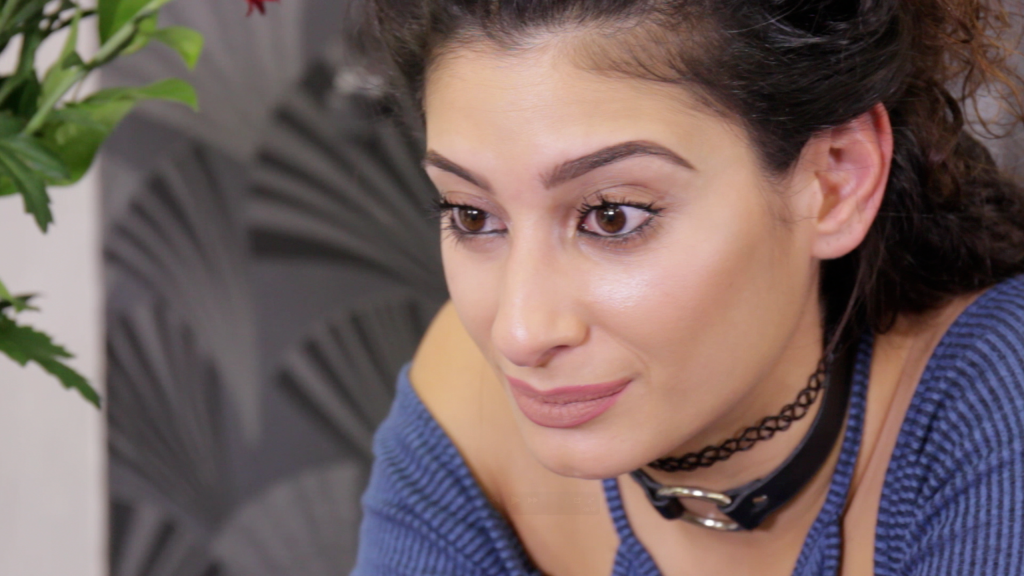
7. Do everything in single takes.
This won’t suit every project. But if the actors are good, you can film scenes in singles. When I shot the short film ‘Mess’ – each scene was a single take. That meant that editing the film was pretty much just choosing the best take of each scene and then lumping them one after the other in the edit. Okay it’s a little bit tougher than that but not by much.
Here’s the film:
8. Shoot Documentary Style.
Like ‘Mess’, I also shot my web-series ‘Sally the Life Coach‘ in a documentary-style. Why? Officially because it suited the story. Unofficially? Because it’s easier on a low-budget. In a documentary, the cameraman follows the action around as it unfolds. In a documentary-styled fiction piece, you get to do the same.
9. Improvise!
I was filming with Leonie Zeumer a few years ago, and in our lunch break I said, “I have an idea for a film. We’re on a Skype Call, and you break-up with me while we’re talking to someone else, but I don’t hear any of it.”
She liked the idea so we turned the camera on and filmed this in one take, completely improvised. It’s so simple and so ridiculous yet I love it!
Here’s another improvised film. It’s 15 seconds long. I was with my friends Steven Porter and Claire Wood, who are both actors. I told them about a rough idea I’d had in my mind that I’d never quite figured out – I told them the idea and they laughed.
So then I wrote a script on a piece of paper. It was four lines. We shot it immediately and here it is:
10. Don’t be a Perfectionist.
As you can see from my examples, the work isn’t perfect! You can criticise the lighting, or the sound, and probably some of the acting. But who cares! The point is we created! We got out there and did something that made our day a little better. Some of these films have been in festivals around the world, some have lived largely unnoticed on YouTube.
The point is, you have to just make stuff. Be creative for creativity’s sake. I remember years, back when TriggerStreet Productions had a website for uploading short films, there was this one woman who would always criticise my work (and a lot of other peoples). I asked her why she hadn’t uploaded any of her own films, and she said she was just trying to figure out an idea that would make her first film perfect.
Well five years went by, I kept checking back. She never made any films, but I went on to work in an industry I love and so did all my friends.
You’re either the guy who makes things or you’re the guy who talks about making things or you’re the guy on the internet who talks about the things other people are making.
I kinda like being the guy that makes things. And I like when other people are too. Go make things!
Email Me: dj@danieljohnsonfilms.co.uk
Twitter: @DanielJohnsonUK

